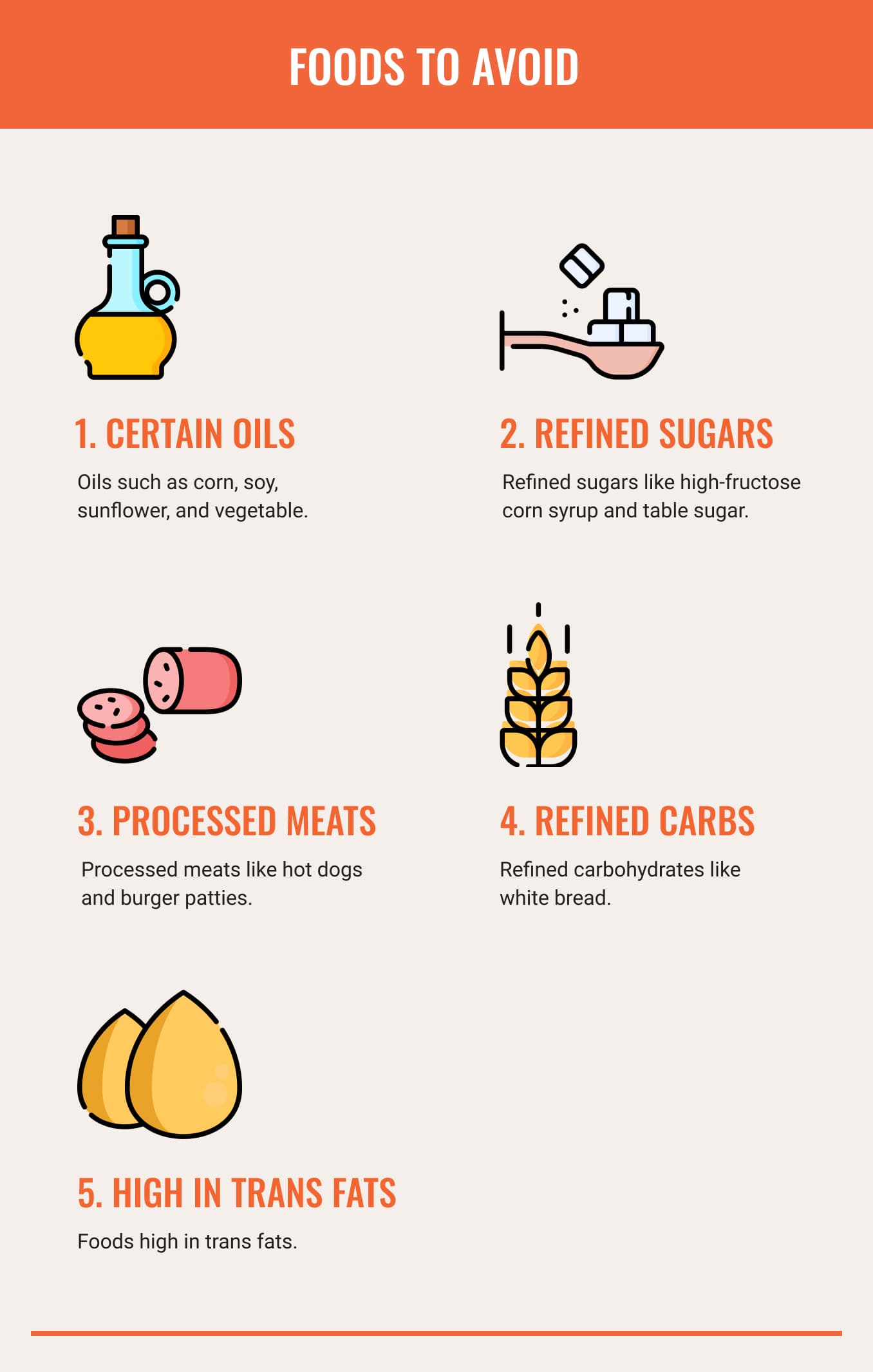
How to avoid menopause weight gain and other menopause symptoms
If you’re experiencing symptoms of menopause or perimenopause, especially menopause weight gain, then this article is for you. I’ve heard from a lot of Broya customers that they turn to bone broth because of all the ways it can relieve menopause symptoms like…
- Bloating
- Mood swings
- Weight gain
- Headaches
- Joint pain
- Digestive issues
- Fatigue
- Sleeping difficulties
- Sore muscles
- Brittle nails
- A hard time concentrating
The biggest reason by far for why women going through perimenopause or menopause order Broya is because they want something nutritious and low-calorie that can help them feel full so that they’re less likely to snack and gain those extra, unwanted pounds. We’ll get into how bone broth in particular can help with menopause symptoms, but first, let’s talk about why you start to feel like this in the first place and what can help.
What Causes Menopause Symptoms?
Once you stop having menstrual periods, there’s a decline in estrogen and progesterone associated with it. With this sudden drop in estrogen levels, that’s what causes most menopause symptoms.
It can happen to any woman in her 30s to 50s. Underweight women are more likely to start feeling symptoms of menopause earlier while women who are overweight will feel the symptoms a lot later.
Why Weight Gain in Menopause Occurs
You may have thought to yourself several times: “Why do perimenopause and menopause make it so hard to lose weight?”
According to multiple studies, there’s no one factor that causes menopause weight gain. It has a lot to do with these factors:
- Hormone fluctuations (for example, if your estrogen level is either low or high, it can lead to increased fat storage.)
- Increased insulin resistance (with age, insulin resistance increases, which leads to hunger, higher blood pressure, and weight gain.)
- During menopause, fat storage shifts from the hips and thighs to the stomach.
In one study done, they wanted to verify if the “hunger hormone”, ghrelin, was more prevalent in women in the perimenopause and menopause stages of their lives than in the pre- and post-menopause stages of life. They were right: they found that the hormone level was twice as high in women during perimenopause and menopause stages than in women in the pre- and post-menopause stages of life.
Another study showed that the reason why weight gain in menopause occurs is a result of impaired function of hormones that control fullness and appetite; when estrogen levels are low, so are the levels of leptin and neuropeptide Y. That’s why you’re more likely to consume more calories than you intend to during the late stage of perimenopause or in menopause.
Above all else, menopause and weight gain often go hand in hand because of poor sleep, lack of exercise, and stress. The less you sleep, the more you want to eat. The more you stress, the more you want to eat. And vice versa. All these factors have a big influence on your fluctuating hormones and therefore can lead to menopause weight gain.
So...How Can I Lose Weight (& Keep it Off?)
In theory, losing weight is quite simple, but obviously, not easy at all, especially when your hormones are working against you.
But generally, the most important thing is a calorie deficit. If you burn more calories than you consume, that’ll help you lose weight. Following this type of menopause diet can be tricky because the number of calories you burn during rest becomes significantly lower in this stage of your life.
So the goal of your menopause diet shouldn’t be to eat as little as possible in terms of calories; the goal should be to take the long term approach and take it day by day. According to Dr. Marc Bubbs, you’re more likely to lose weight and keep it off if you aim to lose 1% of your body weight each week.
Trying to lose weight quicker will make it harder to stick to habits and what’s even more is that a steeper caloric decline will also result in loss of muscle mass (and you really don’t want that during this stage in life - I’ll explain why below). So if you want to learn more about the right approach to losing weight, I highly recommend listening to the podcast episode I did with Dr. Marc Bubbs.
Supplements for Menopause Belly Fat: Yay or Nay?
It’s best to talk with your doctor about this, especially if you’re thinking of fully overhauling your lifestyle with a menopause diet. If you look online, you’ll see talk about black cohosh, ginseng, and red clover, but studies on those are limited, however, there are a few vitamins that are proven to help.
Vitamins That Help Most When it Comes to Symptoms of Menopause & Menopause Weight Gain
If you’re thinking about using supplements, you should talk to your doctor about these ones listed below that minimize the symptoms of declining estrogen:
Vitamin B-12
Vitamin B-12 helps to support bone health, the creation of red blood cells, stable nerves, and healthy brain function. Beef, tuna, salmon, and eggs are all excellent sources of vitamin B-12.
Vitamin B-6
During menopause, serotonin levels decline (and therefore contribute to menopause symptoms like mood swings, low energy, and depression), but thankfully, vitamin B-6 can help make more of it. If you’re low on vitamin B-6, it can cause irritability, skin inflammation, and even anemia.
That’s why you’ll want to have plenty of salmon, chicken breast, bananas, and fortified tofu.
Vitamin E
You’ve probably heard that antioxidants are great at reducing inflammation in the body. Well, vitamin E is one of those awesome antioxidants. When you have the right amount of vitamin E (the daily value is 15 mg), then you’re less likely to have inflammation, stress, depression, and weight gain.
Foods rich in vitamin E include: almonds, spinach, broccoli, and sunflower seeds.
Is There a Right Way to Exercise During Menopause?
You might be thinking: “If I need to burn calories, then I should probably do as much cardio as possible.” While that makes sense, it’s actually not entirely true.
Did you know that estrogen has a lot to do with supporting bone and muscle mass?
Because you lose a lot more bone mass and muscle mass around the time of menopause, strength training becomes a lot more important than cardio. And guess who’s the culprit that’s behind decreased bone and muscle mass? That’s right - estrogen. Estrogen has a lot to do with supporting bone and muscle mass and since estrogen levels go down during perimenopause and menopause, you need to focus on keeping your bones safe.
The way you keep your bones safe is by strength training because you’re building a wall of muscle around them. It’s like a highly fortified wall, but for your bones!
The Menopause Diet: What to Eat and What to Avoid
Supplements can be really helpful, but if you’re not eating the right food, all the right supplements in the world won’t do much to ease menopause symptoms. Why? Inflammation becomes particularly nasty during menopause because the defence against inflammation, estrogen, has waned.
That’s why you’ll want to avoid foods that cause inflammation like: gluten, dairy, soy, processed sugar, lots of alcohol, vegetable oils, and processed meats. Instead, you’ll want to eat foods like grass fed beef, wild salmon and other fatty fish, leafy greens, walnuts, bone broth, and other foods high in omega-3.

After you take out these foods (or at least consume less of them), your diet on menopause should be richer in vitamins and minerals, rather than calories that don’t do much for your overall well-being.
Here are foods that you should be consuming on a daily basis so that you get plenty of antioxidants, proteins, healthy carbs, vitamins, and minerals:

Where Does Bone Broth Come into Play?
At the beginning of this article I mentioned that many customers order Broya bone broth to help them on their menopause weight loss journey. In addition to containing many minerals that help to strengthen bones like calcium, magnesium, potassium, phosphorus, bone broth can help significantly with feeling fuller for longer. So instead of reaching for sugary, processed snacks that cause more inflammation, many say that after drinking bone broth, they no longer have this urge.
Delicious all the way!
“I wasn't sure about the idea of drinking bone broth until I had my first sip! Wow! I was amazed by the explosion of flavor. I strongly recommend it to anyone like me who lives a busy life and doesn't have time to make their own! Best broth ever! It definitely helped with the cravings too…”
- Janick
See what Janick is talking about…

What’s more is that you get plenty of collagen and amino acids when the bones are simmered for 24 hours like we do here at Broya. We simmer the bones for that long because all that good stuff gets released into the water and your body is able to more easily absorb it all.
Take a look at all the benefits here:

Now you have a good starting point with how to keep menopause weight gain at bay. Remember to steer clear of foods that cause inflammation, consume more antioxidant-rich foods, focus on strengthening your muscles to protect your bones, and if you’re having cravings, reach for a pouch of bone broth. The low-calorie, high protein content will allow you to feel full and have less cravings for sugary, processed foods.




